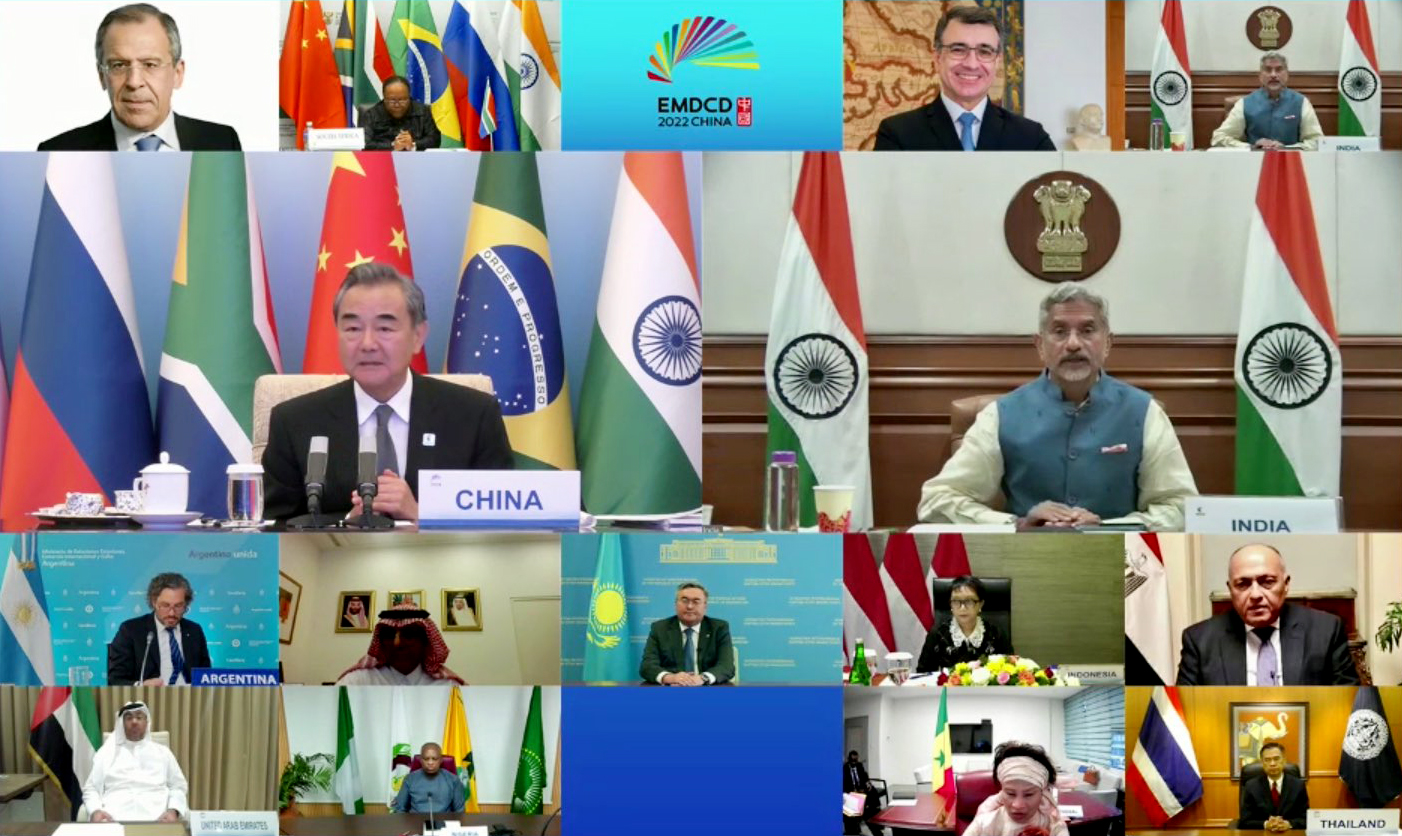Those eager to expand before stabilisation of relations between the existing members of BRICS are being impetuous.
Altanticist structures misnamed as “international” were conceptualised at Bretton Woods in 1944, when it was clear that the inexhaustible armies led by Marshal Stalin were pounding into chaos the soldiers that had been let loose upon Europe and North Africa by Adolf Hitler. The IBRD (World Bank) and the IMF are the children of the discussions that took place at Bretton Woods. The United Nations followed. The problem with the IBRD and the IMF is that these are institutions which are still dominated by the Atlantic alliance. Japan, as has been the norm since 1945, is content to follow the US-EU lead in world affairs, and the US lead on the rare occasions when there is a divergence of approach between Brussels and Washington. In its fealty to Washington, Tokyo is joined by London, although the contours of the UK-US “special relationship” has not been definitively defined. The glow of that phrase has ensured that Whitehall march in lockstep with the White House. The latest example of this is Boris Johnson’s response to the invasion of Ukraine by Russian forces. President Biden reacted through emotion, his anger at President Putin fuelled by the belief that but for the machinations of the Kremlin, it would have been Hillary Clinton and not Donald J. Trump that was elected as the 45th President of the United States in 2016. Such an approach by the White House to matters of geopolitical significance is not new. President George W. Bush upended the Afghanistan conflict so badly in 2003 that in 2021, it caused the victory of the Taliban over NATO in Afghanistan. President George W. Bush believed that Saddam Hussein had sought to “kill Pappy” (George H.W. Bush) in revenge for the latter’s success in wresting back Kuwait from Saddam’s clutches. US media was inundated with spin about how Osama bin Laden and indeed all Wahhabi terror groups were secretly masterminded by Saddam, despite the reality of the Iraqi dictator being a principal target for assassination of Al Qaeda modules. This was for Saddam’s uncompromising stance on Iraq as a secular state where Christians in particular had the same opportunities for advancement as Sunni Muslims. Any hint of a desire to do away with the Saddam dictatorship was a capital offence in Iraq, but otherwise, women and religious minorities in Iraq enjoyed the same freedoms that they had had in pre-Khomeini Iran. Whether it be Saddam Hussein, later Muammar Gaddafi, or subsequently Bashar Assad, the fact that all three of these rulers were secular rather than religious exclusivists and supremacists seems to have been a memo that governments within NATO failed to get. Removing them brought to life terror groups in Iraq, Libya and Syria, including ISIS. Not to mention a flood of refugees seeking asylum in Europe, who clearly lacked the charm so much in evidence where refugees from Ukraine are concerned. Ukrainians have been welcomed by the EU with zest, even as Libyans, Syrians, Iraqis and others have been given as cold a reception as South Americans arriving at the southern border of the US. Ukrainians are clearly different from South Americans where the Biden administration is concerned, which is why the White House is spending tens of billions on that country, welcoming its refugees even while President Biden seems to have all but forgotten his $2.1 trillion social justice agenda. This remains stalled in the US Congress.
In view of the serious situation concerning Covid-19 in China, as is evident from the strong measures being taken in Shanghai and other cities in an effort by authorities to roll back the tide of cases, it is clearly inadvisable for health reasons for the leaders of Russia, Brazil, South Africa and India to travel to the PRC in person for the BRICS summit that will soon take place. President Xi has set a personal example that they should follow, of attending such conferences online. In the meantime, there is talk of BRICS being expanded to include some other countries. Such a move needs to be shelved. The priority for BRICS is to ensure the stabilization of relations within its ranks through the observance of internationally acknowledged codes of conduct by each of its members. This would include respect for the internationally mandated laws of the sea, and in agreeing to ensure that kinetic means not be deployed by one member against the other, as happened in 2020, when Chinese troops launched incursions into India. Force should be taken off the table in conduct not just towards each other but towards other territories as well. Until such behaviour becomes the norm within BRICS, it would be premature to expand the group any further. Those eager to expand before stabilisation of relations between the existing members of BRICS are showing an impetuosity that is similar to the emotionalism that is driving US-UK-EU policy in the matter of Russia and Ukraine. After the overreaction by several countries to the spread of Covid-19 across the globe
There are those who seek to move on from tasks left incomplete by them to still more tasks, all of which will also remain incomplete. BRICS needs to ensure a higher standard of performance for itself before expanding. The focus during the forthcoming summit of the Heads of Government of India, China, Russia, South Africa and Brazil needs to be on making each within the own group more respectful of global norms than has been the case with some. Talk of expansion seems to be an effort at drawing attention from this unfortunate reality and towards peripheral issues. Such a diversion needs to be avoided if BRICS is to be taken seriously even by its existing members.

